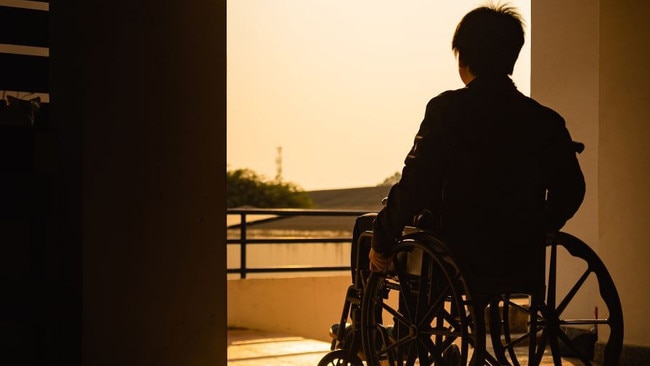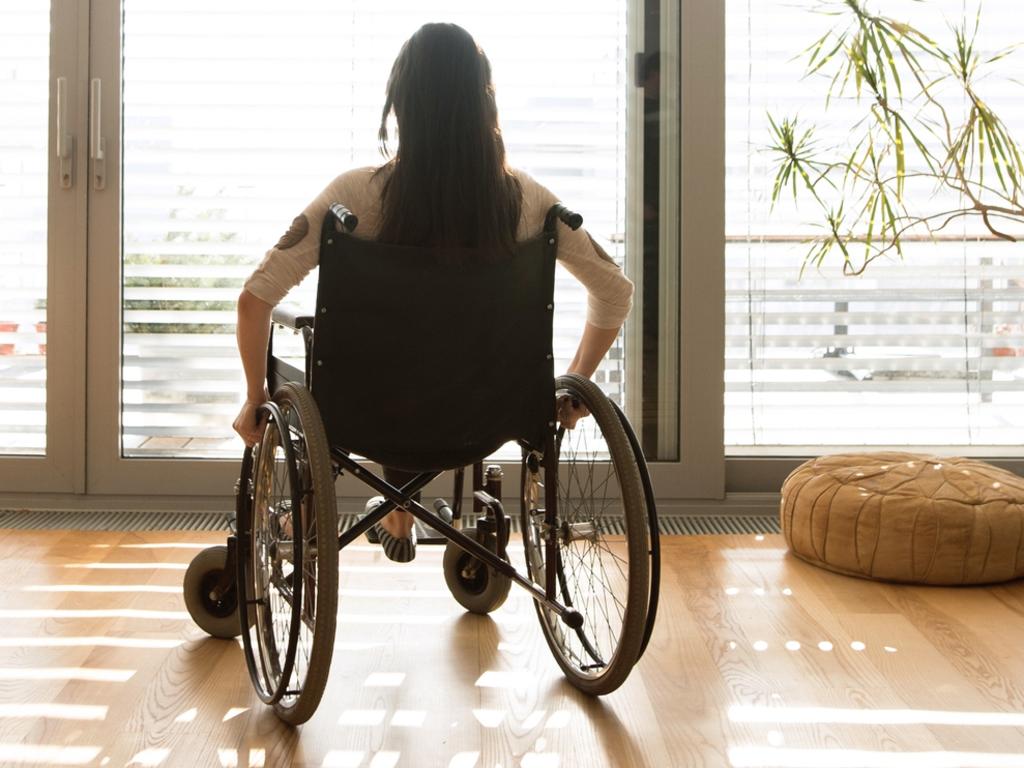NDIA raises millions in debt against providers and participants
More than $65m in debts have been issued by the National Disability Insurance Agency in the last year, with one organisation owing $2m owed back to the taxpayer-funded scheme.

You can now listen to The Australian's articles. Give us your feedback.
More than $65m in debts have been issued by the National Disability Insurance Agency against providers and participants in the last year, with one organisation owing $2m to the taxpayer-funded scheme.
The data comes amid significant debate over the scheme’s management, with the government passing legislation last week aimed at improving the scheme and helping it save $14bn over the next four years.
Disability advocates and providers have been sounding the alarm over the agency’s past debt-raising practices for years, which they warned could put vulnerable participants at risk as Robodebt had done, despite the NDIS not using automated debt recovery processes.
The Australian revealed earlier this month that 27-year-old NDIS participant, Hannah Friebel, had taken her life after receiving a debt recovery notice from the agency of nearly $30,000.
NDIA figures showed Friebel was one of 336 participants who the agency had sent a debt collection notice to in the 12 months to July 2024 – before the government passed its first tranche of NDIS reforms – which came to $9m in total.
A further $21m was raised by the agency against 118 providers, of which the largest debt came to $2m.
Nearly $25m in debts owed in the year to July were initiated by providers and participants, rather than the agency, who sought to either self correct or cancel their claims.
The NDIA also initiated $10m in debts owed to 19 participants to recover funds from compensation settlements.
“For the financial year 2023-24, annualised total scheme costs were almost $42bn. Within this context, as at 31 July 2024, approximately $39m was owed by providers and $26m … was owed by participants to the scheme,” an NDIA spokesman said.
“The NDIA has strong safeguards in place to ensure compliance and debt raising practices are carefully considered. It is also important to note that this process is not automated.”
Peak disability service body, Disability Intermediaries Australia, said it had “been raising its concerns with the NDIA about their debt recovery processes, practices and sophistication for the past four years” and called on government to “learn from the lessons of Robodebt” by ensuring participants were adequately protected.
Opposition NDIS spokesman Michael Sukkar said it was imperative Labor explain clearly how legislation passed last week would “better protect NDIS participants”, particularly those who suffered from mental ill-health as Friebel had.
“The Coalition supports the Friebel family’s call for greater accountability and regular governance of client spending on self-managed NDIS plans to prevent further tragedies,” he said.
Friebel’s father, John, confirmed he had written to NDIS Minister Bill Shorten outlining how a debt had been raised against his daughter 16 months after she had been allowed to self-manage her own plan, despite having issues with impulsive spending because of her bipolar type 2 diagnosis.
Mr Shorten said he had spoken to the Friebel family and agreed that the NDIS payment system had been flawed.
“(This) shouldn’t have allowed this to happen. I know the agency is speaking directly with John and Jenny (Friebel) about specific reforms to the NDIS payment systems. Some of the changes contained in the NDIS laws that passed last week will strengthen the payments system to avoid accrual of claims,” he said.
“It is important to acknowledge the agency was not pursuing Hannah’s debt before her death, and I’m advised they had informed her and her family of this fact beforehand. But I know nothing can ever truly compensate for their loss.”
Ms Friebel said while the agency had indicated it would not pursue the debt against her daughter two weeks before she made the third and final attempt on her life, a formal waiver of the debt was not issued until nearly two months after her passing.
Mr Friebel said he was “definitely feeling hopeful” that the latest changes to the bill would go some way to ensuring what happened to their family never happened again.
“But I want to see it in action,” he said.
“In 11 years it is so staggering that the right systems and governance were not in place for the NDIS, especially when its budget is bigger than most of the companies on the Fortune 500.”
Under the legislation passed last week, the agency will take a person’s disability into account when they apply for a waiver for their debt. This would mean someone with bipolar type 2, like Friebel, would have the behaviour associated with that condition considered by the agency should a participant ask their debt be waived.
The bill also gives clearer guidance on what can be claimed with NDIS and what can’t be, while expanding the NDIA’s power to intervene in people’s spending early and determine who should be self-managed and agency-managed.








To join the conversation, please log in. Don't have an account? Register
Join the conversation, you are commenting as Logout